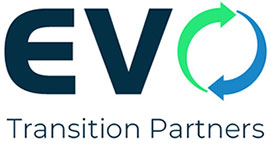The healthcare industry is set for a transformative year in 2025, with mergers and acquisitions playing a pivotal role in reshaping the landscape. Here's what’s driving the activity.

The Ultimate Financial Checklist: Before Selling Your Veterinary Practice
If you’re a veterinary practice owner considering selling your practice, there are several important financial steps you need to take before putting your business on the market. These money moves can help you maximize the value of your practice and ensure a smooth transition of ownership. In this article, we’ll explore five essential steps to take in preparation for selling your veterinary practice.
1. Understanding the Value of Your Veterinary Practice
Before you can make informed decisions about selling your veterinary practice, it’s crucial to understand its value. Evaluating the worth of your practice is a complex process that takes into account various factors such as revenue, assets, and goodwill. Seeking the help of a professional appraiser can provide you with an accurate assessment of your practice’s value. When it comes to determining the value of your veterinary practice, there are several key factors that appraisers consider. Financial performance is one of the most important aspects, as it provides insights into the profitability and stability of your practice. Appraisers will closely examine your balance sheets, profit and loss statements, and tax returns to gain a comprehensive understanding of your practice’s financial health.
Another crucial factor in evaluating your practice’s worth is your client base. Appraisers will analyze the number of active clients, the frequency of visits, and the average revenue per client. A strong and loyal client base can significantly enhance the value of your practice, as it demonstrates a solid foundation for future growth and profitability.
In addition to financial performance and client base, appraisers also take into account the value of your practice’s assets. This includes equipment, real estate, and any other tangible assets that contribute to the overall value of your practice. The condition and quality of your equipment, as well as the location and market value of your real estate, can have a significant impact on the appraisal value.
Goodwill is another important factor that appraisers consider. Goodwill refers to the intangible value of your practice, such as its reputation, brand recognition, and relationships with clients and referring veterinarians. A practice with a strong reputation and positive relationships will have higher goodwill, which can positively influence its overall value.
Evaluating Your Practice’s Worth
When assessing the worth of your veterinary practice, appraisers consider factors such as financial performance, client base, equipment, and real estate. It’s important to gather all relevant financial documents, including balance sheets, profit and loss statements, and tax returns. These documents will help the appraiser assess the profitability and stability of your practice.
Furthermore, appraisers will conduct a thorough analysis of your practice’s operations and management. They will evaluate the efficiency of your systems and processes, the qualifications and experience of your staff, and the overall organization and structure of your practice. A well-managed practice with streamlined operations can command a higher value in the market.
Market conditions and industry trends also play a role in determining the value of your veterinary practice. Appraisers will consider factors such as the demand for veterinary services in your area, competition from other practices, and any regulatory or economic factors that may impact the industry. Understanding the broader market context can help you gauge the potential value of your practice.
Importance of a Professional Appraisal
A professional appraisal is a crucial step in selling your veterinary practice. It provides potential buyers with confidence in the accuracy and reliability of the practice’s value. Additionally, it helps you understand the strengths and weaknesses of your practice and identify areas for improvement before listing it for sale.
By obtaining a professional appraisal, you can ensure that you are setting a fair and realistic asking price for your practice. This can attract serious buyers who are willing to pay a premium for a well-valued practice. Moreover, having a professional appraisal can expedite the sales process by providing potential buyers with the necessary information and documentation they need to make informed decisions.
It’s important to note that a professional appraisal is not just beneficial for selling your practice. It can also be valuable for strategic planning, partnership buy-ins or buy-outs, and obtaining financing for practice expansion or acquisition. The insights gained from a professional appraisal can help you make informed decisions about the future of your practice. In conclusion, understanding the value of your veterinary practice is essential for making informed decisions about its sale. By engaging the services of a professional appraiser, you can obtain an accurate assessment of your practice’s worth, taking into account factors such as financial performance, client base, assets, and goodwill. A professional appraisal not only provides potential buyers with confidence but also helps you identify areas for improvement and set a fair asking price.
2. Preparing Your Financial Statements
Accurate financial statements are essential when selling your veterinary practice. Prospective buyers will want to review your financial records to assess the health and profitability of your business. It’s essential to keep your bookkeeping up to date and accurate.
Importance of Accurate Bookkeeping
Maintaining accurate bookkeeping records is crucial not only for selling your practice but also for managing your business’s day-to-day financial operations. By keeping detailed and organized records, you’ll have a clear picture of your practice’s financial health and be able to provide potential buyers with transparent and reliable financial information.
Role of Profit and Loss Statements
One of the key financial documents that buyers will review is the profit and loss statement. This statement provides a snapshot of your practice’s revenue, expenses, and profitability over a specific period. Ensuring your profit and loss statements are accurate and up to date will help potential buyers make informed decisions about your practice’s financial performance.
3. Reducing Outstanding Debts
Reducing outstanding debts is another crucial money move to make before selling your veterinary practice. High levels of debt can negatively impact the value of your practice and make it less attractive to potential buyers.
Strategies for Debt Reduction
Implementing strategies to reduce your outstanding debts will not only improve the value of your practice but also enhance its financial stability. Consider prioritizing debt repayment and exploring ways to consolidate or refinance existing debts to lower interest rates and monthly payments.
Impact of Debt on Practice Value
Potential buyers will assess the financial risks associated with your practice, including outstanding debts. The more debt your practice has, the higher the perceived risk for potential buyers. By reducing your outstanding debts, you can increase the attractiveness and marketability of your practice.
4. Enhancing Practice Profitability
Increasing practice profitability is a vital step in maximizing the value of your veterinary practice. When potential buyers see a profitable practice, they are more likely to offer a higher purchase price.
Increasing Revenue Streams
Exploring additional revenue streams can significantly enhance the profitability of your veterinary practice. Consider offering new services, developing partnerships with local businesses, or expanding your client base through targeted marketing efforts. These strategies can help boost your practice’s revenue and make it more appealing to potential buyers.
Controlling Operational Costs
Reducing operational costs can have a significant impact on your practice’s profitability. Analyze your expenses, identify areas where cost reductions can be made, and implement efficiency measures. By demonstrating effective cost management, you can improve your practice’s financial performance and its value in the eyes of potential buyers.
5. Ensuring Personal Financial Success (this is key!)
Selling your veterinary practice is a significant financial decision that can greatly impact your future. It’s not just about assessing the value of your practice; it’s also about understanding how the sale fits into your personal financial trajectory. To ensure that selling your practice aligns with your long-term financial goals, it’s essential to organize your personal finances effectively.
Assess Your Current Situation & Define Your Financial Goals
Before you dive into the process of selling your veterinary practice, take a comprehensive look at your personal financial landscape. Evaluate your cash flow, savings, investments, and outstanding debts. Understanding your current financial position will provide a solid foundation for making informed decisions about the sale.
What are your financial objectives for the future? Do you plan to retire comfortably, start a new venture, or invest in other opportunities? To determine if selling your practice will sustain you for the long haul, you must clearly define your financial goals and needs. Consider factors like your desired retirement age, lifestyle aspirations, and any potential financial responsibilities, such as supporting your children’s education or caring for aging parents.
Analyze the Impact of the Sale
With a clear picture of your current financial status and your future goals, assess how the sale of your veterinary practice will impact your finances. Calculate the expected proceeds from the sale after deducting taxes, transaction costs, and any outstanding debts related to the practice. Understanding the net financial gain from the sale will help you gauge its significance in achieving your goals.
Develop a Post-Sale Financial Plan
A successful practice sale shouldn’t mark the end of your financial planning; it should be the beginning of a new chapter. Create a post-sale Financial Life Plan that outlines how you’ll manage your finances after the sale. This plan should include cash flow, risk management, wealth preservation strategies, tax planning and a timeline for achieving your financial objectives.
Diversify Your Investment Portfolio
Once you’ve determined the financial impact of the sale, consider how you’ll manage the proceeds. Diversifying your investment portfolio is crucial for mitigating risk and optimizing returns for the long-term. Consult with a fiduciary financial advisor to explore investment options that align with your goals, values and risk tolerance. A well-structured investment strategy can help you grow and protect your wealth over time.
Seek Professional Guidance
Navigating the intricacies of personal finance and practice sale transactions can be overwhelming. Consider working with a trusted fiduciary financial advisor, tax professional, and legal expert who specialize in veterinary practice sales. Their expertise can provide valuable insights and ensure that your financial interests are well-protected throughout the process.
6. Planning Your Exit Strategy
Having a well-thought-out exit strategy is crucial when selling your veterinary practice. Timing your practice sale and ensuring a smooth transition of ownership are key considerations to take into account.
Timing Your Practice Sale
Timing plays a crucial role in maximizing the value of your veterinary practice. Consider the current market conditions and economic climate in your area when deciding on the optimal time to sell. Consulting with industry professionals and business brokers can provide valuable insights to help you make informed decisions.
Transitioning Ownership Smoothly
A smooth transition of ownership is essential to maintain the continuity of patient care and preserve the practice’s reputation. Develop a detailed plan for transitioning your practice to the new owner, including staff communication, client notifications, and patient transfer processes. By ensuring a seamless transition, you can increase the attractiveness of your practice to potential buyers, and ensure the highest level of care for your patients.
Not sure where to start?
Consider talking with a Financial Life Planner who specializes in serving veterinary practice owners. We’re a fan of Bryan Gum, CFP® and the rest of the team at Triune Financial Partners.



